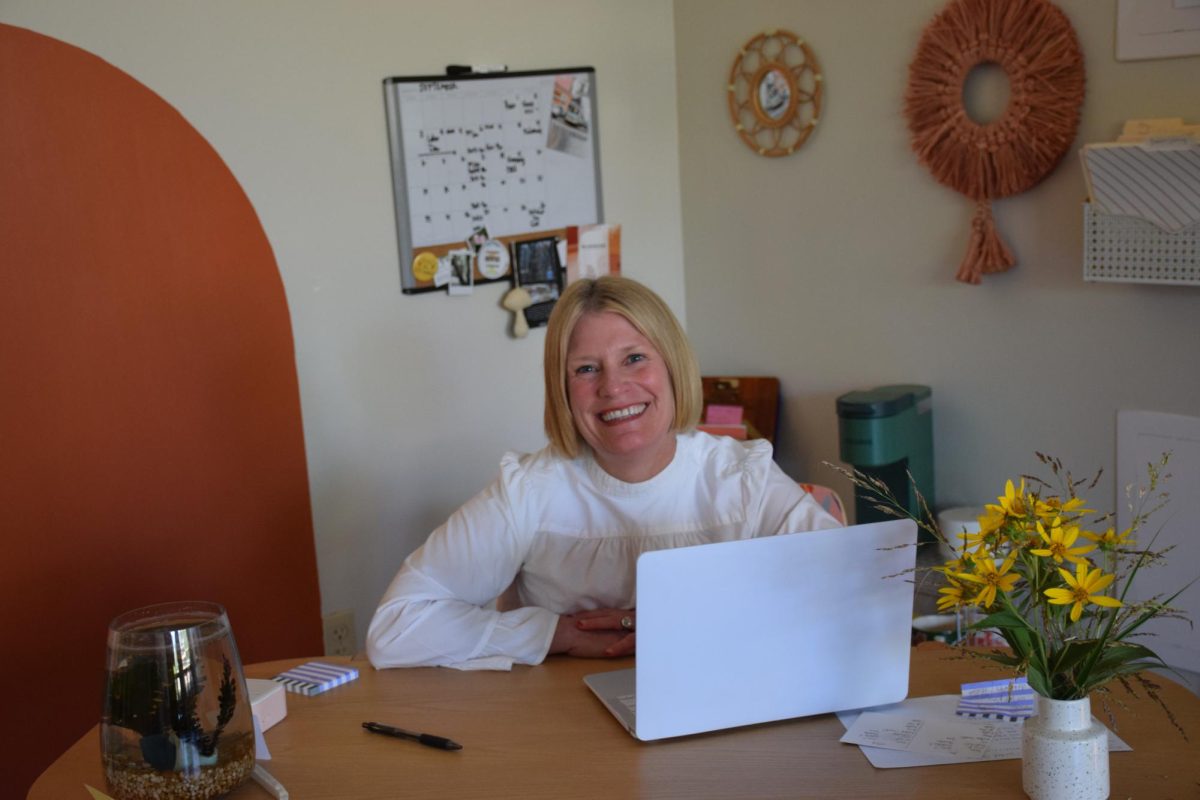The “f” word. It dominates politics, newspapers, art and media nationwide. A vast community of people rally behind it, championing its meaning. The very mention of it can spark uproar and debate. The Seabury community discusses feminism, the fateful “f” word.
Identifying exactly what feminism is differs depending on the person. “I absolutely consider myself a feminist. I think that anyone who takes the time to actually think about the term and what it means should consider themselves a feminist,” says faculty member Matt Patterson. “Feminism is the attempt to define female subjectivity, this meaning to get women agency [and] to ensure that women have power over their own lives. I don’t see how any reasonable sane, democratic American can be opposed to that concept.”
Junior Heba Aziz agrees: “I am a feminist. . . . I do think that women and men should have equal rights and that women and men were created equally,” she says. “I think, in the most technical form, [feminism means] that men and women are equal and have equal rights.”
Similarly, sophomore Katie Mastrosimone says, “I am a feminist, because I believe [feminism] doesn’t just affect women or people who present as feminine. It affects everyone, gender stereotypes, and . . . anyone who says that they don’t exist today, or there’s no consequences of them still floating around is just wrong.”
Feminism is an umbrella term which includes various types of feminists. “I’m what’s called a gynocentric feminist,” says faculty member Jenny Baker Powers. “It’s based in French feminism, which is a little bit different from American feminism,” she says. “I think that American feminism [alleges that] women should be treated like men, and of course, I believe in equal rights, but I also think that women and people who identify as women have different needs and desires. I don’t want to be treated like a man, I want to be treated like a woman, respectfully.”
Despite this seemingly simple concept, the term is laced with controversy, especially politically. “I think [feminism] has become politicized. I don’t think it is inherently political because I think if we are talking about gender, and we’re talking about the way people’s lives shape out each and every day, we don’t have to be having a conversation about Republicans and Democrats,” says faculty member Haley Bajorek.
Patterson agrees: “It shouldn’t be like a Democrat issue or a Republican issue. It should just be [about] the most basic political principles about equality and justice. . . . I think we should all be feminists, even if we might disagree on how best to promote feminist principles,” he says.
To Mastrosimone, feminism does “not always” have to be political, but “it could be about personal exploration and freedom.” However, they also think “to ignore the political aspects of it is . . . not the right thing.”
“Barbie,” director Greta Gerwig’s 2023 blockbuster hit, sparked debates about feminism. Bajorek, originally a Barbie hater, says, “You could go into it loving Barbie, you could go into it hating Barbie, you could go into it as a man, a woman, whatever. You could come out recognizing that the lived experience of a woman or a non-binary person is a different experience than that of a man. And that means that there’s work for everyone to do.”
One topic that has been made political is the discussion of feminism in the classroom, and whether it needs to be more amplified or less present in curriculums. Patterson thinks there is opportunity for more feminist discussion: “I think that teachers are aware of the need to represent different voices. I don’t know that we always perfectly achieve that, but I think that, without being overtly political, we do a pretty good job of trying to get a multiplicity of voices into our curriculum,” he says.
Some might fear imposition of ideas when teaching about feminism. Bajorek does not: “Coming from a very conservative part of the country, I have a lot of experience in navigating those difficult conversations, so it’s not something I’m fearful of,” she says. However, she does wonder “how many [students] are comfortable having that conversation with [her].”
Though the faculty puts in effort to include feminism at school, what about the students? At the beginning of the 2022 school year, Seabury’s Feminists Take Action club came to a sudden stop. Baker Powers, the past faculty advisor of the club, reflects on the club’s abrupt ending: “From an administrative standpoint, there was always support.” Despite this, “there didn’t seem to be as much interest” from students and with “no members,” the club could not survive. “[We] have to take into account where the wrongs have been and address them and fix them.”
A fallen feminist club, five declined interviews for this article and somewhat lacking representation in classes makes clear that the Seabury community is still learning how to discuss and handle feminism at school.


